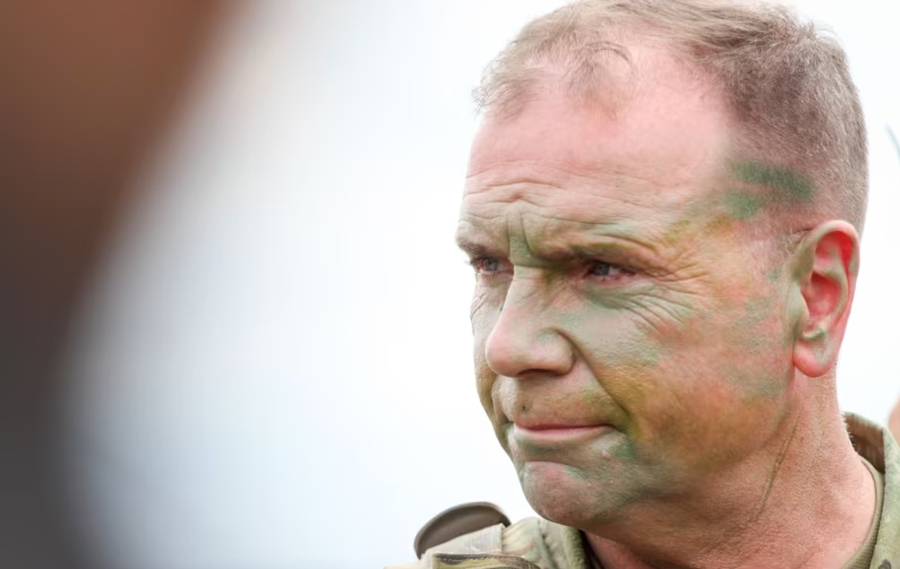
As military chiefs from 30 European countries and beyond gathered near London this week to discuss a military mission in Ukraine, former US Army chief in Europe Ben Hodges told Radio Free Europe that these countries could form the mission without American help.
"Ukraine has stopped Russia almost single-handedly," said Ben Hodges, who retired as a commanding general in 2017.
"The soldiers I have met over the years in the United Kingdom, France, Germany, the Netherlands, Finland and Poland are well-qualified and well-equipped men and women."
Britain and France are leading efforts to create a military force that would be deployed in Ukraine in the event of a ceasefire, but have suggested that what British Prime Minister Keir Starmer has called "American guarantees" are vital for this force.
This request appears to be related to the need for air, logistical, and intelligence support.
However, Washington has been cool to the idea of US military involvement, while Moscow has said that any presence of forces from NATO member countries would be unacceptable.
"Judging from the conversations between the American and Russian sides, I believe there is almost no possibility that the United States will offer those guarantees. I do not believe this administration is willing to do that," Hodges said.
"The whole conversation between the American and Russian sides is unrelated to the reality of who Russia is."
Russia's continued attacks on Ukraine
Talks between the two states have resulted in advancing plans for a partial ceasefire, rather than a complete cessation of fighting, as proposed by Washington.
They have also focused on improving bilateral diplomatic and economic relations, including arranging ice hockey matches.
Meanwhile, Russia has continued its attacks on Ukraine, hitting two hospitals and other civilian infrastructure this week. Ukraine accused Russia of attacking its energy infrastructure on March 18, hours after Russian President Vladimir Putin said he would stop such attacks.
Ukraine has responded with drone attacks on military and energy facilities in Russia.
Starmer said at the March 20th briefing that preparations would be made for what he called the "operational phase."
At this stage, discussions on how the force will look, how it will be equipped, and other aspects are expected to be finalized.
Currently, Britain and France have pledged to commit their soldiers.
Earlier this week, Britain said that "a significant number" of countries were willing to commit peacekeeping troops, but without naming any.
Countries such as Australia, Canada and Finland have openly stated that they are willing to be involved in some way.
Starmer's spokesman said on March 17 that he had mentioned engineering support, the use of airspace and crew housing as ways in which states could contribute to the mission.
Hodges said that the main element that the parties in England must agree on is a clearly defined mission, which would allow for detailed planning and preparation.
"They are probably working on several scenarios. If we talk about a zone of separation between Ukrainian and Russian troops, we are talking about a large number of troops. If we talk about deploying them behind the Ukrainians, then fewer troops are needed. This scenario is safer, but less effective."
Rules of engagement?
Another detail being discussed concerns the rules of engagement.
"If the force is going to be 50-100 kilometers behind the Ukrainians and they have to ask Brussels for permission to shoot down a drone, then this is not going to be a successful ceasefire monitoring force," Hodges said.
The March 20 meeting has been postponed outside London.
In the launch, the British Government released photographs of Starmer visiting a nuclear submarine earlier in the week.
Being the first visit by a British prime minister in more than a decade, it has highlighted the existence of Britain's nuclear capabilities, as Starmer aims to increase support for a military mission without direct US involvement.
Hodges told Radio Free Europe that British and French nuclear forces, although much smaller in number than Russian soldiers, could serve as a deterrent force.
"There is no need to match every Russian missile to deter them," he said./ REL (A2 Televizion)











